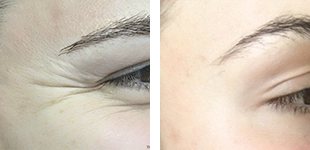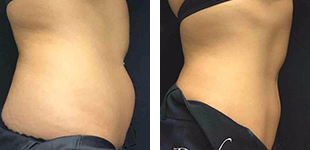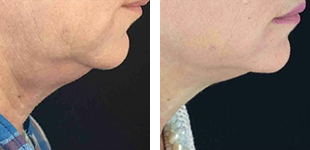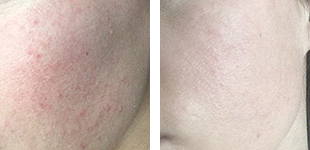Collagen is something we all have heard and know about. But do we actually know? Why is it important and how can we actually get more of it? With the abundance of medical devices, nutrition companies, and skincare products it can be difficult to know what really works and what is a waste of money.
I want to share information with our patients regarding this topic. Information that is based on scientifically reviewed literature and clinical studies, not what my aunt’s neighbor’s mom thinks of a random device she saw on QBC. The first topic of discussion of the three-part series will be injectable collagen stimulators.
About Collagen
Naturally, we have to talk about collagen first. If you thought this “collagen” was a simple molecule, think again! There are several types of collagen, 28 types have been discovered so far and every couple of years scientists discover more. They are named using roman numeral and the most common types are I though IV, with type I making up 90% of the collagen in the human body.
Collagen is made up of amino acids and because of its rigidity and resistance to stretching it is the perfect fit for skin, tendons, bones, and ligaments.
I will spare you the details of the biochemical pathways each of these collagen types undergo, but if you are interested in reading more in-depth about that you can take a look at my referenced articles down below.[1] What you need to know is that collagen loss is a major contributor of loss of structural support and thus facial aging. But, there is hope!
Collagen Stimulation
I want to talk about two fillers that have been clinically proven to stimulate collagen. Let’s first talk about Radiesse, a product made by Merz Pharma. This is a temporary soft tissue dermal filler that is 100% biodegradable. It is made with Calcium Hydroxylapatite (CaHA), the same mineral component of bone and teeth in the human body. Synthetic CaHA has been used for over 25 years for dental, maxillofacial and bladder implants. The CaHA microspheres make up 30% of the product, with the cellulose carrier gel making up the remaining 70%. What makes Radiesse different from traditional hyaluronic fillers is that the gel provides an immediate volume correction but after time stimulates collagen in the treated area.

How, you ask? After 2-3 months, the macrophages of the body (a type of white blood cell that kills and removes microorganisms) break down the gell releasing the CaHA into the tissues. The presence of the CaHA triggers low-grade tissue reactivity, aka collagen. Radiesse continues to stimulate collagen until the microspheres are naturally absorbed by the body.
We cannot talk about Radiesse without talking about Sculptra! This injectable is made of poly-L-lactic acid (PLLA), a biodegradable polymer that is approved for the correction of shallow to deep contour deficiencies. Sculptra is composed of PLLA microparticles, sodium carboxymethylcellulose and nonpyogenic mannitol. The carboxymethylcellulose serves as an emulsifier, improving hydration. Once injected, the PLLA induces a localized tissue inflammatory response resulting in increased collagen deposition and increased dermal thickness. Sculptra is ideal for people who are looking to enhance overall volume loss in the face, and for those who are patient. Unlike Radiesse that acts as a stimulator and traditional dermal filler, Sculptra is primarily a stimulator. It takes a couple of months for the effect of the increased collagen to be noticeable. The number of treatments depends on the level of collagen loss. It has been a loved product for individuals who are looking for the most natural and subtle results.
Your Personal Consultation at DermFX
So, how do you decide between these two? Well, first come in and get a consultation at Dermfx! When we assess your face we can put together a plan that can address your personalized concerns. As injectors, we are aware that Radiesse acts as a scaffold for collagen production and promotes the ingrowth of new tissue but, due to its viscosity, needs to be placed deeper and in only in certain areas of the face. On the other hand, Sculptra can address collagen loss in more areas of the face, due to the fluid nature of the product, but it does not provide instant results like Radiesse.
Stay tuned for our next article that will address oral collagen supplements!
References
- Collier, H. (2013). Collagen-stimulating modalities in medical aesthetics: exploring the evidence base. Journal of Aesthetic Nursing, 2(9), 424–433. https://doi.org/10.12968/joan.2013.2.9.424
 DermFx
DermFx



